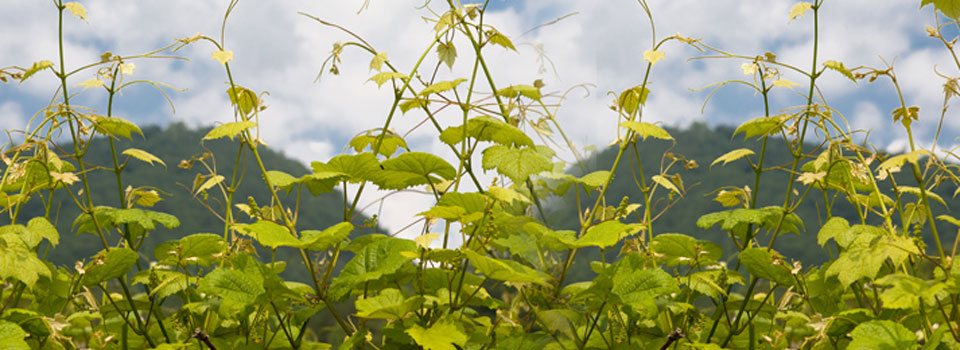Agriculture in Georgia has long been dependant on such things as peaches and peanuts, but in the past decade more and more North Georgia farmland is being used to grow grapes. Now, the College of Agricultural and Environmental Sciences wants to endow a professorship in viticulture, to help guide the growing industry and improve the mountain economy.
Since the mid-90s, the number of vineyards and wineries in north Georgia has more than tripled. A financial impact study, produced in 2005 by UGA’s Carl Vinson Institute of Government, showed that the businesses generated $1.16 million in gross revenue in 2005 and could produce almost $2.3 million by 2015. Jobs generated by the growing industry were expected to increase by 44 percent from 232 in 2005 to 335 by 2015.
Tiger Mountain Winery near Clayton, Crane Creek Vineyards in Young Harris and Wolf Mountain Vineyards and Winery in Dahlonega are among the newcomers, using native and European grapes to produce Cabernet Franc, Cabernet Sauvignon, Merlot, Malbec and Sauvignon Blanc-several that have won awards in prestigious California wine competitions.
Starting out was a struggle. European grape vines must be grafted onto native American rootstock because of a mite that got into the soil hundreds of years ago. Cultivating the European varieties is a tedious and challenging process, one not well understood in the Georgia agriculture community until recently.
“A lot of the grape growers (in Georgia) have had to learn by trial and error,” says Scott Angle, dean of the College of Agricultural and Environmental Sciences. “They are the pioneers.”
Some of the early pioneers, like John Ezzard (BS ’58), of Tiger Mountain, and Eric Seifarth or Crane Creek, sought advice from successful grape growers in Virginia, which has a similar soil composition and climate to North Georgia.
Fourteen years later, each is producing between 3,000 and 4,000 cases of wine annually.
John McMullan (BBA ’58, MBA ’60), a partner in Tiger Mountain Winery and a trustee of the Arch Foundation, says vineyards and winery owners deserve the same assistance that Georgia peanut growers and chicken farmers get from the state’s flagship institution.
“There is a natural reason for the university to be supportive,” he says.


